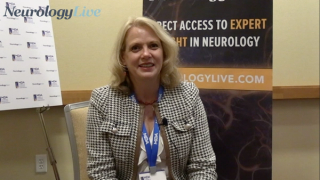
Muscular Dystrophy
Latest News


FDA Accepts Resubmitted NDA for Ataluren in Nonsense Duchenne Muscular Dystrophy
Latest Videos

CME Content
More News

Massachusetts Becomes Fourth State to Include Duchenne Muscular Dystrophy in Newborn Screening Panel
Screening for DMD in Massachusetts is expected to begin by June 2026, which could enable earlier diagnosis and intervention.

AOC 1044, an investigational antisense oligonucleotide treatment for patients with Duchenne muscular dystrophy, has previously been granted orphan drug and fast track designation by the FDA.

Scholar Rock's TOPAZ phase 2 trial shows sustained motor function improvements in SMA patients treated with apitegromab over 48 months, with phase 3 results expected soon.

Enrollment in the dose level 2 expansion cohort is expected to complete early in Q3 2024, with initial strength and functional data anticipated in the second half of 2024.

To ensure participant safety, all boys who received the gene therapy in the clinical program will be followed up for long-term safety monitoring.

Pending positive results from an early-stage trial, a mid-stage study evaluating MyoPAXon’s effect on other targeted muscles and muscle function will be initiated.

A recent study revealed that pediatric patients with Duchenne and Becker muscular dystrophy have low rates of corticosteroid use.

Additional interim clinical study results comprising 6- and 12-months of treatment data on multiple patients, is expected to be readout in the first quarter of 2025.

Overall, treated patients showed improvements in multiple cardiac measures, including left ventricular ejection fraction, as well as indexed volumes.

The chief executive officer and the chief scientific officer at CureDuchenne talked about a recent webinar that discussed the broad FDA approval of a gene therapy for Duchenne muscular dystrophy, highlighting patient choice and the ongoing efforts to improve treatments. [WATCH TIME: 9 minutes]

Following the 12-week program, participants reported numerous physical and neuropsychiatric benefits in their daily living, such as increased energy level, better mood, and improvement in balance.

The newly added cohort allows for greater opportunity to treat patients earlier, with the hope of impacting disease course and preserving muscle.

Additional data of a phase 2 study presented at the 2024 SLEEP Annual Meeting demonstrated that pitolisant significantly improved in secondary end points among patients with myotonic dystrophy type 1.

The AAV vector-based gene therapy originally received FDA approval for treating ambulatory pediatric patients aged 4 to 5 years with Duchenne under the accelerated approval pathway.

AOC 1020 (del-brax) from Avidity Biosciences shows over 50% reduction in DUX4 regulated genes, trends of functional improvement, and favorable safety in FSHD patients.

Newly Formed Clinical Advisory Board United in Potential of SAT-3247 for Duchenne Muscular Dystrophy
Satellos Bioscience has established a clinical advisory board to aid in developing their lead drug candidate SAT-3247, an oral small molecule therapy for Duchenne muscular dystrophy.

Fordadistrogene movaparvovec is a recombinant AAV9 agent carrying a shortened version of the dystrophin gene, being assessed in the phase 3 CIFFREO study.

Although a small sample of 5 patients with DMD, results showed significant expression of microdystrophin and reductions in creatine kinase, a biomarker of muscular distress, in GTN0004-treated patients.

Deflazacort, a corticosteroid approved for children with Duchenne muscular dystrophy, has been on the market since 2017 under the name Emflaza.

The FIREFISH study showed that most children maintained or improved motor functions and feeding abilities over five years.

Following the mixed results, NS Pharma is working with the FDA to determine how to proceed with viltolarsen.

Ataluren, which was conditionally approved in Europe in 2014, had its real-world use backed by data from the STRIDE registry.

Dyne aims to pursue expedited approval pathways for DYNE-251, leveraging dystrophin as a surrogate biomarker.

DYNE-101 demonstrated dose-dependent splicing correction, with the 5.4 mg/kg cohort showing a 27% mean correction at 3 months.

The phase 3 REACH trial investigating Fulcrum Therapeutics’ losmapimod in patients with facioscapulohumeral muscular dystrophy remains on track with topline data anticipated in the fourth quarter of 2024.
















